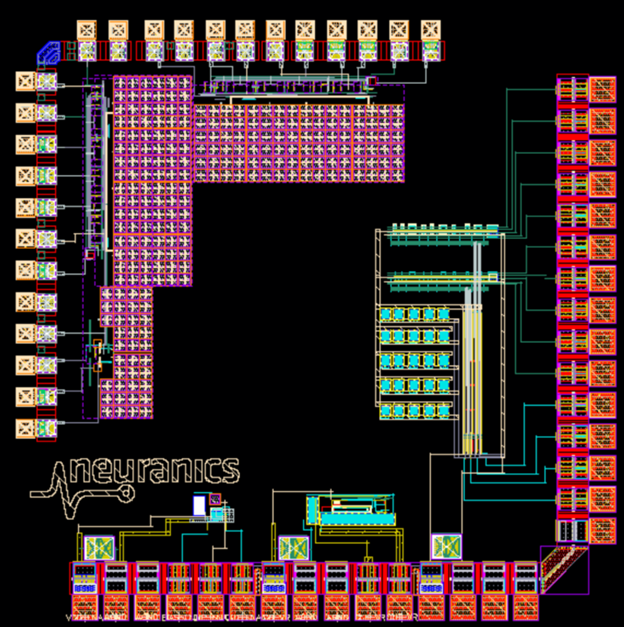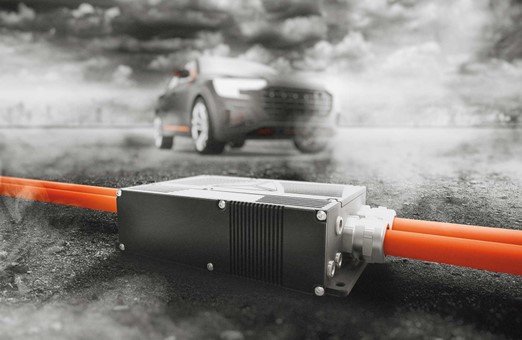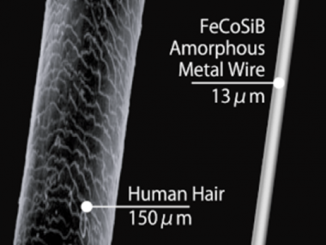
Neuranics, a recent spin out from the Universities of Glasgow and Edinburgh, has developed pioneering magnetic sensor technology that can bring breakthrough capabilities in health, fitness and metaverse applications. Building low-profile magnetic sensors that can detect the magnetic fields generated by the muscles and the heart, the company is releasing a product development kit for design engineers.
Special Report: Magnetic Technology Innovation at CES 2024
Built upon modern semiconductor processes, the sensors can be produced at a scale and price-point that is attractive for the consumer electronics industry, positioned particularly well for product developers of wearables for healthcare markets. The sensors can detect the magnetic and mechanical activity of the heart to accomplish magnetocardiography through thin clothes and can provide a low cost 24/7 monitoring platform.

Founded in 2021 as a spin-out from the Universities of Glasgow and Edinburgh, the company has recently secured pre-seed funding of £1.9M from an investment group led by Par Equity. Now it is unveiling its technology to consumer electronics markets globally. In February, it will be demonstrating its capabilities at Mobile World Congress in Barcelona and in January it did so at CES 2024 in Las Vegas.

“We are delighted to be launching the MCG development kit so quickly after our funding round,” said Noel McKenna, CEO, at CES 2024 in January. “With our breakthrough technology sports, fitness and healthcare companies can develop new products based on the benefits of magnetic sensors. The kit records heart magnetic activity, wirelessly transferring data over Bluetooth for real-time 24/7 analysis on smartphones, tablets, or laptops.

The magnetocardiography sensors have a single point of contact on the body, or through thin clothing, which can replace existing 3-lead electrocardiography sensors for use in sports fitness devices and medical monitoring devices. The MCG signal gives greater resolution and clarity on the operation of the heart and can show blood movement within the main heart valves.
The development kit will come with the latest Neuranics magnetic sensor which can detect tiny magnetic signals from the heart muscle, prototype electronics, Bluetooth interface, software for analysis on a laptop and an APP for Android mobile phones and tablets. The kit will allow developers to experiment with magnetic sensors and the software and app are highly customizable. The kit will be available for purchase in early 2024 and will come with consultation and technical support.

Tunnel Magnetoresistance (TMR) is a quantum mechanical phenomenon in a nanoscale in which the electrical resistance of a thin insulating barrier between two ferromagnetic layers changes significantly based on their relative magnetic alignment, the company explains. When the magnetisations of the layers are parallel, electrons can tunnel through the barrier easily, resulting in low resistance. However, when their magnetisations are antiparallel, electrons experience a higher energy barrier, causing a significant increase in resistance.

Neuranics’ technology harnesses the TMR effect, enabling the detection of small (pT) magnetic signals originating from organs of the body – for example the heart and muscles of the arms. The chip-scale sensors and application-specific integrated circuit systems can operate at room temperature. For more info, see www.neuranics.com.



